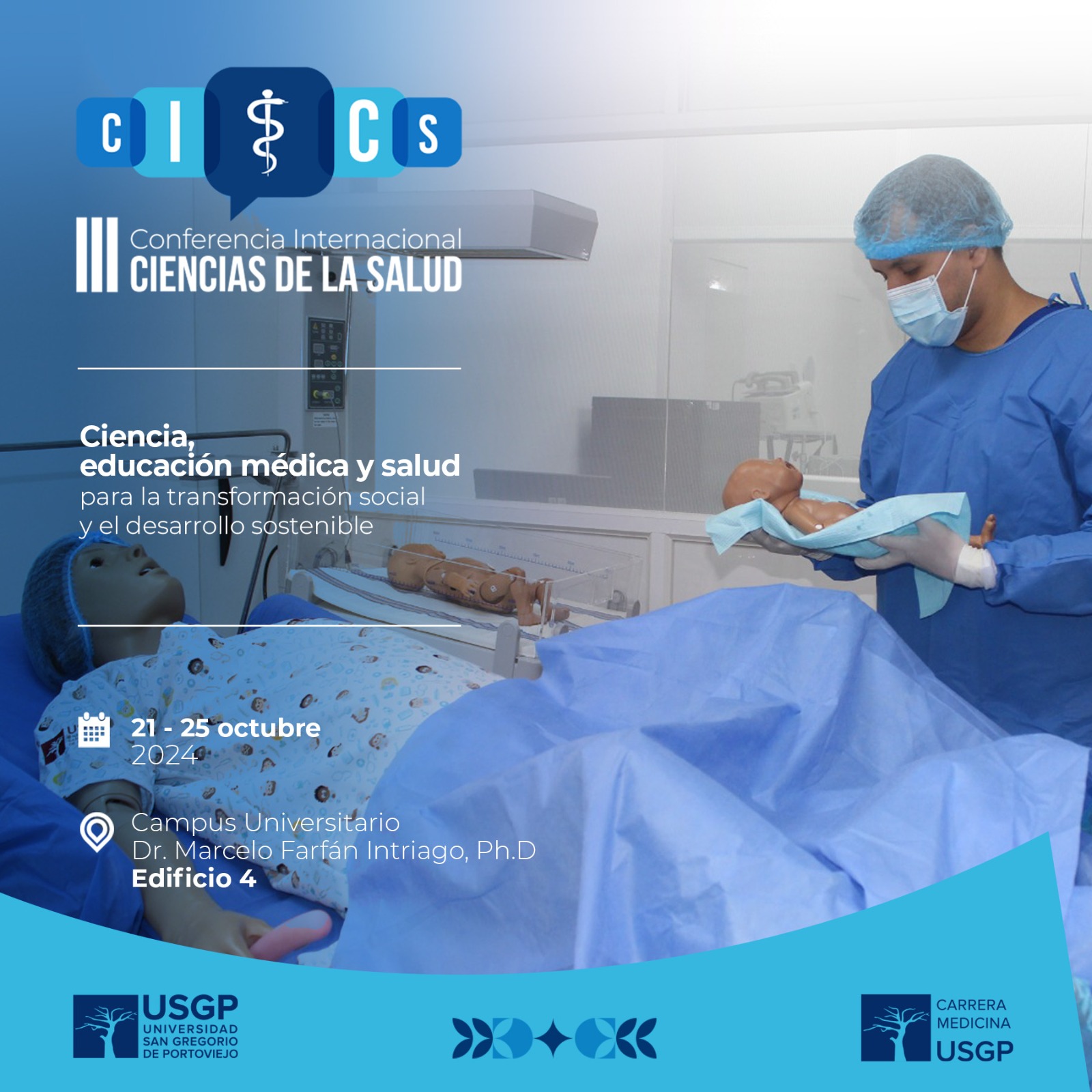III CONFERENCIA INTERNACIONAL DE CIENCIAS DE LA SALUD

Enfoque, objetivos y alcance
La Revista Gregoriana de Ciencias de la Salud (e-ISSN: xxxx-xxxx), de la Universidad San Gregorio de Portoviejo, Ecuador, es una plataforma de comunicación científica de alto nivel, especializada en Ciencias de la Salud. Nuestro objetivo es fomentar el avance y la difusión del conocimiento en este ámbito crucial, incentivando la investigación y el debate académico. Dirigida a profesionales y estudiantes del área, la revista aspira a convertirse en un recurso esencial para su desarrollo académico y profesional.
La Revista Gregoriana de Ciencias de la Salud tiene como objetivos principales, promover la cooperación científica a diferentes niveles, internacionalizar el conocimiento en Ciencias de la Salud y estimular la discusión académica mediante la publicación cuatrimestral de avances en investigación, ciencia y tecnología en el campo de la salud, a través de la presentación de resultados de investigaciones originales, artículos de revisión, presentación de casos clínicos, artículos históricos, semblanzas, editoriales y carta al Editor. Estos trabajos serán incluidos en las diversas categorías temáticas de la revista, según la naturaleza de su contenido. Estas secciones incluyen: Investigación Clínica; Ciencias Básicas en Salud; Salud Pública y Epidemiología; Tecnologías Médicas y Diagnóstico; Enfermería y Cuidado de la Salud; Rehabilitación y Fisioterapia; Bioética y Ética Médica; Educación y Gestión en Ciencias de la Salud; Nutrición y Ciencias de los Alimentos; Medicina Preventiva; Psicología y Salud Mental; Geriatría y Cuidado del Envejecimiento; Medicina Alternativa y Complementaria; Globalización y Salud; e Innovación en Ciencias de la Salud.
La revista acepta manuscritos redactados en español e inglés, siempre y cuando no hayan sido presentados simultáneamente a otras revistas científicas. Dichos manuscritos se someten a un riguroso proceso de revisión por pares externos a doble ciego, en conformidad con los estándares internacionales, garantizando la calidad y validez científica.
La revista fomenta la presentación de trabajos relacionados tanto con la investigación básica como aplicada sobre:
Frecuencia de publicación
La Revista Gregoriana de Ciencias de la Salud se publica de forma periódica, con una frecuencia de dos números al año (junio y diciembre). Se establecen plazos claros para la recepción de manuscritos, revisión por pares y publicación, para garantizar una gestión eficiente y oportuna.
Indexación
Buscadores académicos
CrossRef
Google Scholar Citations
Esta revista opera bajo una Licencia Creative Commons Attribution 4.0 International.
